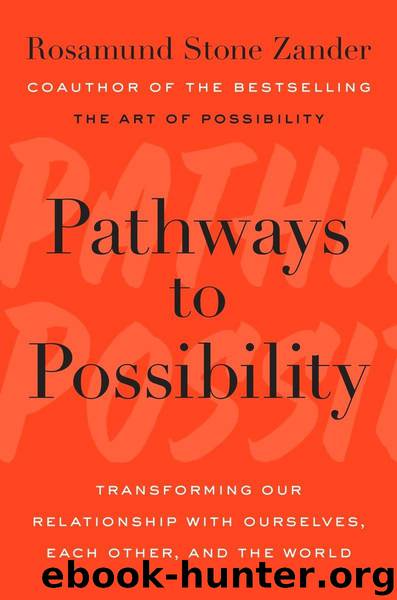Pathways to Possibility: Transforming Our Relationship with Ourselves, Each Other, and the World by Rosamund Stone Zander

Author:Rosamund Stone Zander
Language: eng
Format: mobi
Publisher: Penguin Publishing Group
Published: 2016-06-20T14:00:00+00:00
CHAPTER TWENTY
Puebla and Beyond
IN THE FOLLOWING TALE, huge resonant forces came together through the will of many people: a will that had long been repressed with no apparent opportunity for change. It started in a small classroom in Mexico, initiating a metamorphosis that spread out and touched parts of the whole country. It is dramatic corroboration of how a nation can exhibit a walking story of intractable despair, while underneath and out of sight are buried impulses of passion and hope ready to spring into action when a metaphorical finger finally makes contact with the vibrations on the rim of the glass.
One of the heroes of this story is a man named Julio who had left Mexico to continue his studies on the violin in Switzerland and spent eleven years playing in the Suisse Romande orchestra in Basel. Then, disillusioned with the itinerant life of an orchestral musician, he returned to Puebla with the intention of building a music program for children on the model of El Sistema, the highly successful, publicly funded program in Venezuela initiated by conductor/politician José Antonio Abreu, with the mission to lift kids out of poverty through classical music.
The belief of the El Sistema movement, centered in a philosophy of human dignity, is that every child, rich or poor, can learn to experience and express great music deeply. For Dr. Abreu and his followers, the way out of poverty lies in strengthening the spirit through a music education based in love and joy in an aspiring, nurturing community. To run a program like this in Mexico was Julio’s dream.
So on his return from Switzerland, Julio visited all the schools in the area, auditioning children for their musical talent, giving ear tests and rhythm tests to more than eight hundred kids. Then, by soliciting donations of instruments and securing a small rehearsal space, he built his own program of thirty children. But it wasn’t long before Julio started suffering from a lack of resources and faintness of heart and succumbed to the story of hopelessness. He just couldn’t see where it would go from there.
A woman named Lenore, the mother of two of the youngsters in Julio’s band, wanted desperately for her children to have the opportunities that she foresaw as the future of his program. In support of this, Lenore volunteered at a big conference in Puebla, Ciudad de las Ideas, that seemed to promise her access to people with resources of many kinds. When she saw that a conductor named Benjamin Zander was on the docket, she volunteered to be his guide throughout the conference. Lenore had done her homework on her guest, and during the drive to Puebla from the airport enrolled Ben in the idea of bringing some new inspiration to Julio.
The next morning Lenore drove by the hotel to take the maestro to the small town on the outskirts of Puebla where Julio had his little school. Just as they were leaving, Ben caught sight of a man he had met at the dinner the night before, who was making a documentary on the conference for Spanish TV.
Download
This site does not store any files on its server. We only index and link to content provided by other sites. Please contact the content providers to delete copyright contents if any and email us, we'll remove relevant links or contents immediately.
Rich Dad Poor Dad by Robert T. Kiyosaki(6612)
Bad Blood by John Carreyrou(6611)
Principles: Life and Work by Ray Dalio(6422)
Playing to Win_ How Strategy Really Works by A.G. Lafley & Roger L. Martin(6245)
Management Strategies for the Cloud Revolution: How Cloud Computing Is Transforming Business and Why You Can't Afford to Be Left Behind by Charles Babcock(4563)
The Confidence Code by Katty Kay(4251)
Thinking in Bets by Annie Duke(4218)
American Kingpin by Nick Bilton(3875)
Delivering Happiness by Tony Hsieh(3418)
Project Animal Farm: An Accidental Journey into the Secret World of Farming and the Truth About Our Food by Sonia Faruqi(3212)
The Power of Habit by Charles Duhigg(3128)
The Tyranny of Metrics by Jerry Z. Muller(3065)
Brotopia by Emily Chang(3049)
The Marketing Plan Handbook: Develop Big-Picture Marketing Plans for Pennies on the Dollar by Robert W. Bly(3047)
Mastering Bitcoin: Programming the Open Blockchain by Andreas M. Antonopoulos(3035)
I Live in the Future & Here's How It Works by Nick Bilton(2993)
The Content Trap by Bharat Anand(2917)
Building a StoryBrand by Donald Miller(2896)
Applied Empathy by Michael Ventura(2892)
